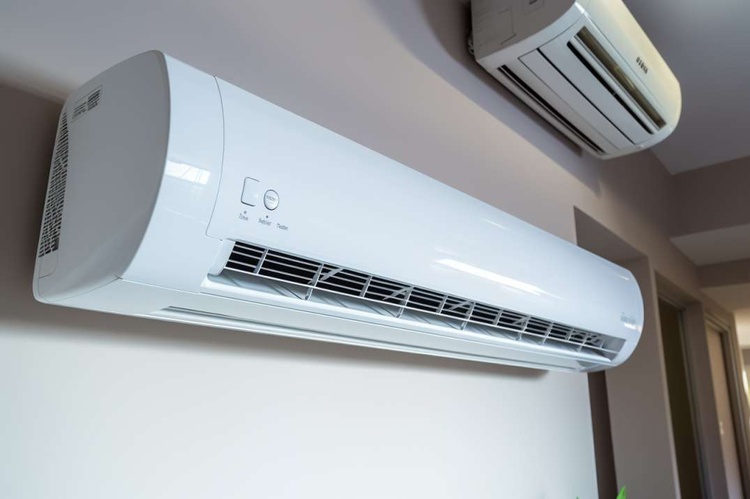
The Benefits of Air Conditioners Without Outdoor Units

Understanding Air Conditioners Without Outdoor Units
Air conditioners without outdoor units, often referred to as indoor air conditioning systems, come in various forms, including portable units and mini-split systems. Unlike traditional air conditioning systems that require external units for heat exchange, these options are designed to be installed entirely indoors. This makes them ideal for properties where outdoor installations are impractical, such as high-rise buildings or homes with limited outdoor space.
These units operate using advanced technology that allows for efficient heat exchange without the need for an outdoor compressor. Mini-split systems, for example, consist of an indoor unit connected to a small outdoor compressor through a refrigerant line. However, recent innovations have led to the development of completely self-contained units that do not require any external components, making installation straightforward and unobtrusive.
Advantages of Indoor Air Conditioning Solutions
One of the primary benefits of air conditioners without outdoor units is their ease of installation. Since there is no need for external modifications or structures, homeowners can quickly and efficiently set up these systems with minimal disruption. Many models are designed for easy plug-and-play use, allowing for swift cooling or heating whenever necessary.
Additionally, these systems often boast superior energy efficiency compared to traditional models. By minimizing the distance between the cooling unit and the room, energy loss is reduced, resulting in lower utility bills. Many modern units are equipped with inverter technology, which adjusts the compressor speed based on the current temperature, further enhancing energy savings.
Moreover, indoor air conditioning units tend to be quieter than their outdoor counterparts. This is particularly advantageous for those living in urban environments or in close proximity to neighbors. With noise levels significantly reduced, individuals can enjoy a comfortable indoor climate without the disturbance often associated with traditional systems.
Heat Pump Pricing Considerations
When exploring air conditioning options, understanding heat pump pricing is crucial for budgeting. Heat pumps, which can provide both heating and cooling, are becoming increasingly popular due to their versatility and efficiency. The price of heat pumps can vary widely based on several factors, including the type of system, installation complexity, and additional features.
On average, the initial cost of a heat pump system can range from moderate to high, depending on the model and installation requirements. While the upfront investment might seem substantial, it is essential to consider the long-term savings on energy bills. Many users find that the efficiency of heat pumps translates into significant savings over time, making them a worthwhile investment.
Additionally, certain government programs and incentives are available to help offset the costs associated with installing heat pumps and other energy-efficient technologies. These programs may provide financial assistance, tax credits, or rebates, making it easier for homeowners to transition to more sustainable energy solutions.
Government Aid for Solar Panels
In line with the push for renewable energy solutions, many governments offer assistance programs to encourage the adoption of solar panels. Solar panels not only help in reducing electricity costs but also contribute to environmental sustainability by harnessing clean energy from the sun.
Government aid for solar panels can come in various forms, including grants, tax credits, and low-interest loans. These programs are designed to make solar energy more accessible to homeowners and businesses, promoting a shift towards renewable energy sources. Additionally, installing solar panels can significantly increase a property’s value, making it an attractive long-term investment.
Potential buyers should explore local and national initiatives aimed at promoting solar energy use. Engaging with a qualified solar installer can provide insights into available incentives and help determine the best solutions for individual energy needs.
Conclusion: Making Informed Choices for Comfort and Efficiency
As the demand for energy-efficient cooling and heating solutions continues to rise, air conditioners without outdoor units emerge as a compelling choice for many homeowners. Their ease of installation, energy efficiency, and quiet operation make them an attractive option for those seeking to enhance their indoor comfort without compromising on aesthetics or space.
In considering heat pump pricing, it is essential to weigh the initial costs against long-term savings, as these systems can significantly lower energy bills over time. Furthermore, exploring available government aid for solar panels opens up opportunities for homeowners to invest in renewable energy solutions, contributing to a more sustainable future.
By staying informed and exploring the various options available, homeowners can make educated choices that align with their comfort preferences, financial goals, and commitment to sustainability. The shift towards modern, efficient air conditioning and heating solutions is not just a trend; it’s a step towards a greener and more comfortable living environment.
The Benefits of Air Conditioners Without Outdoor Units
©2024 All rights reserved
